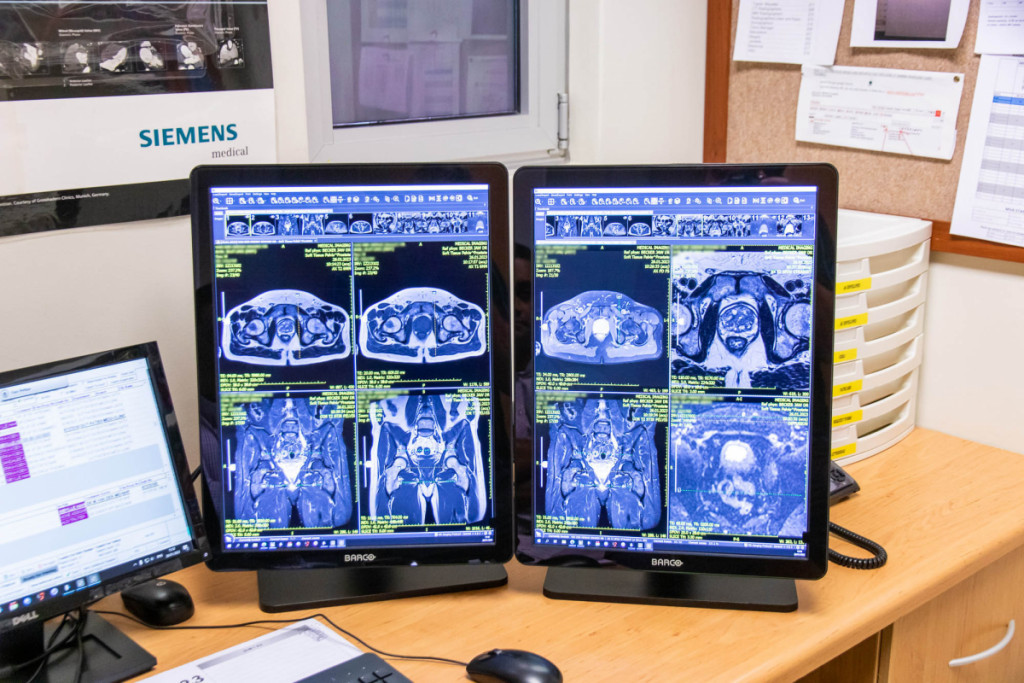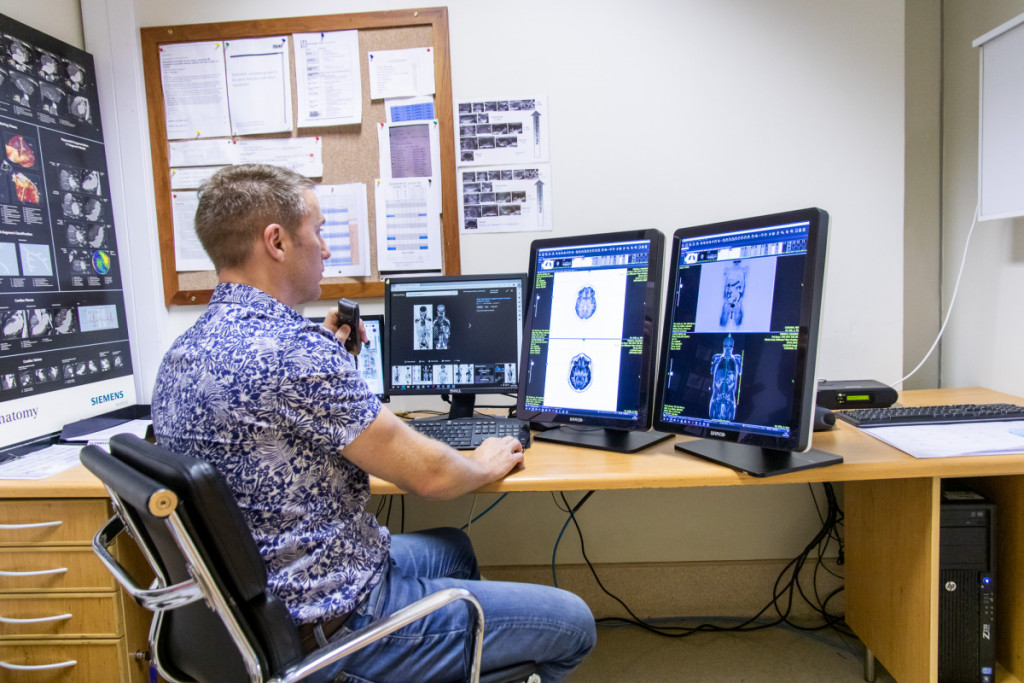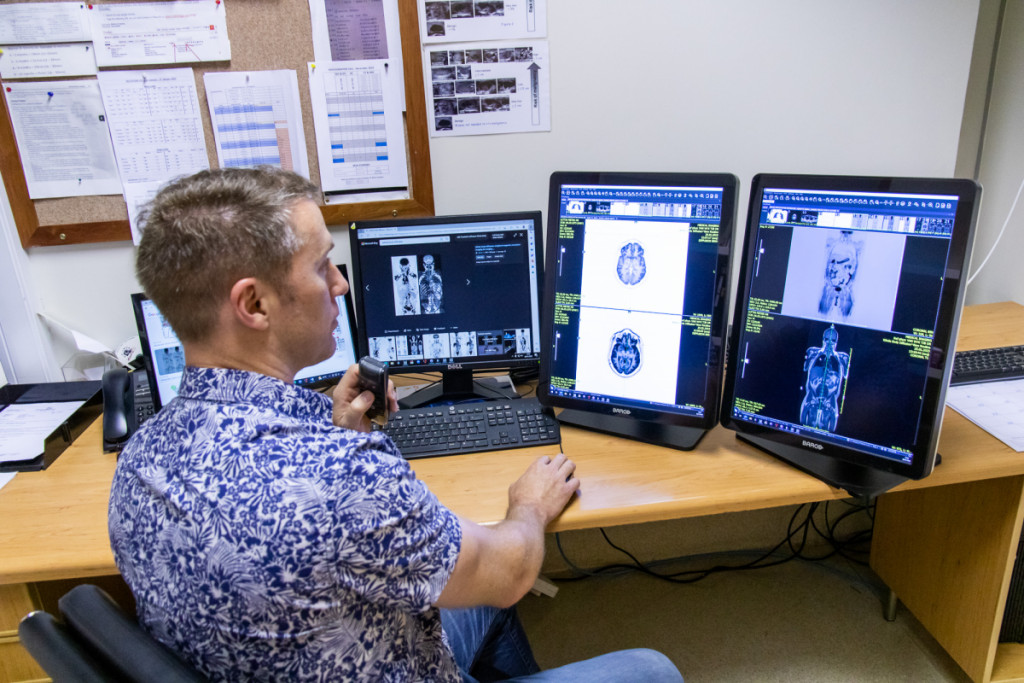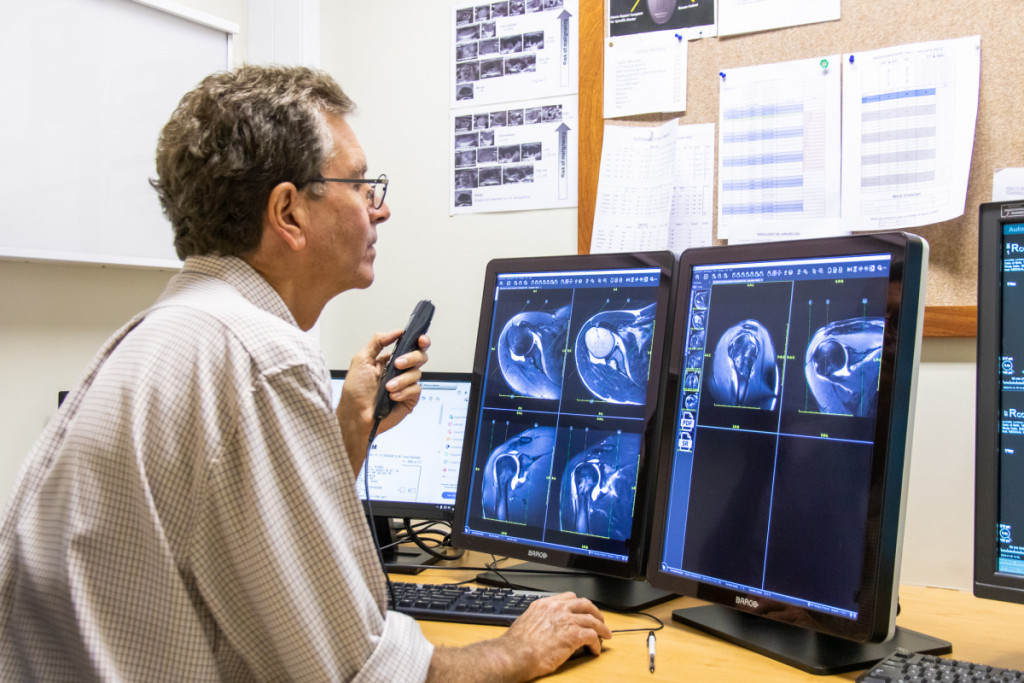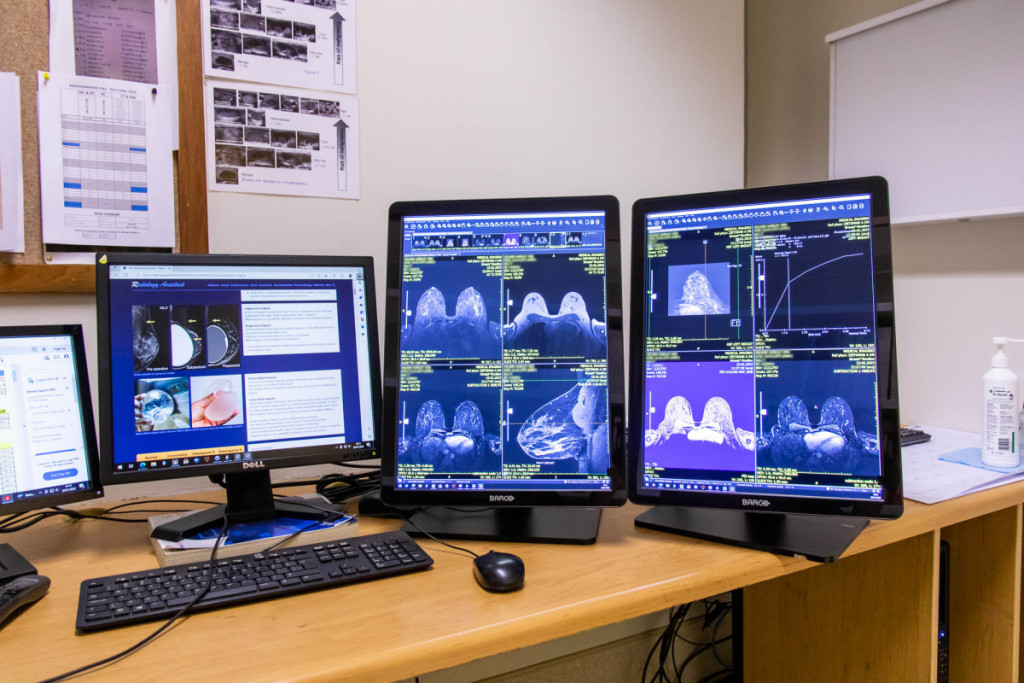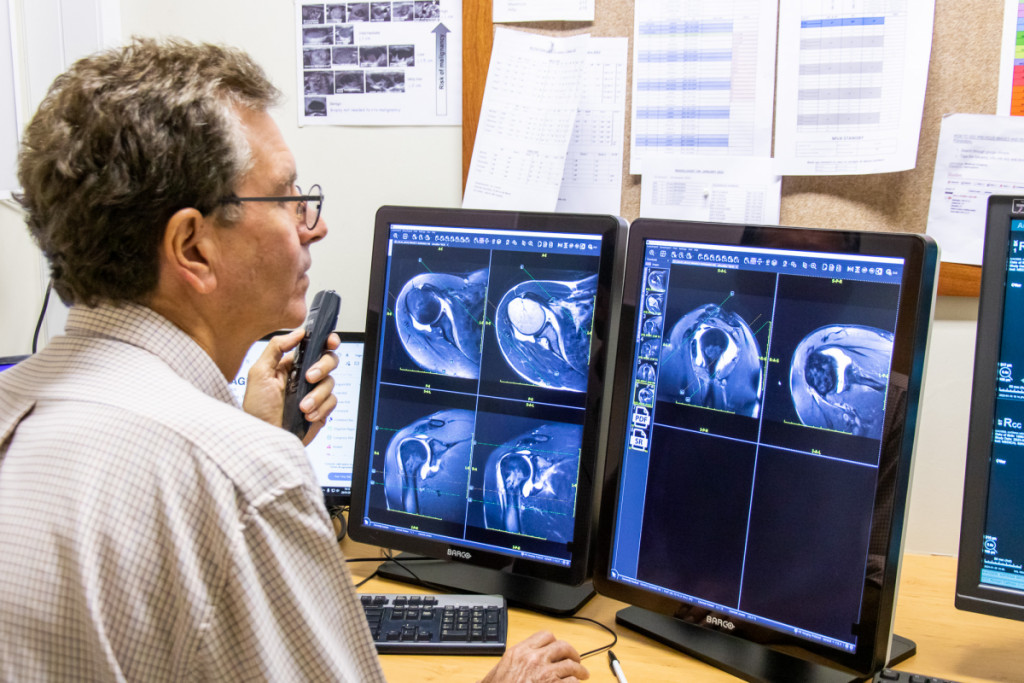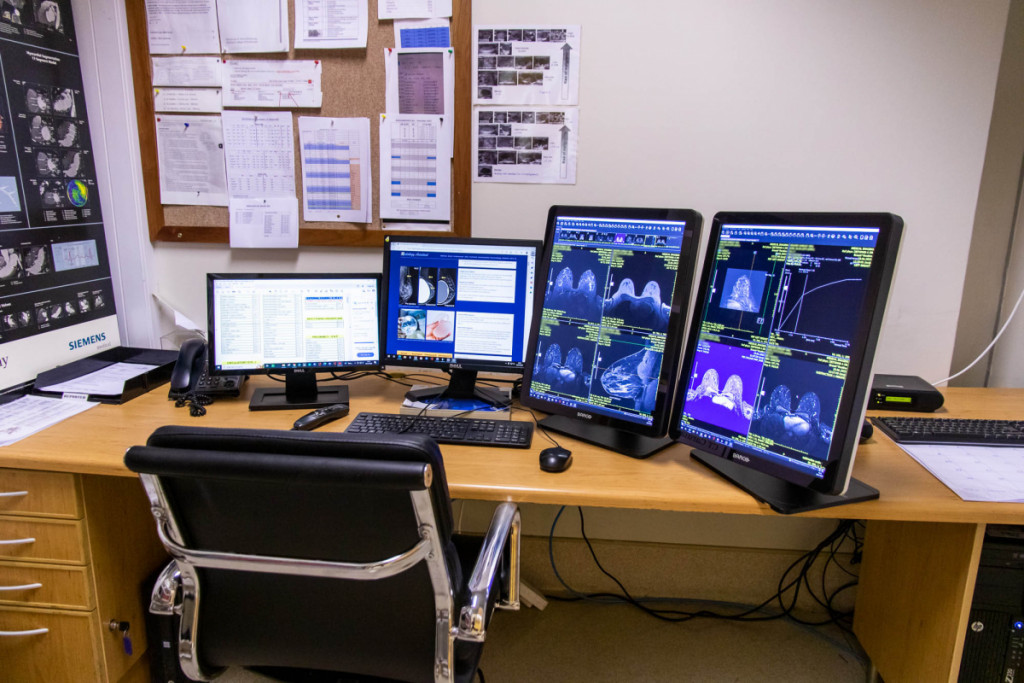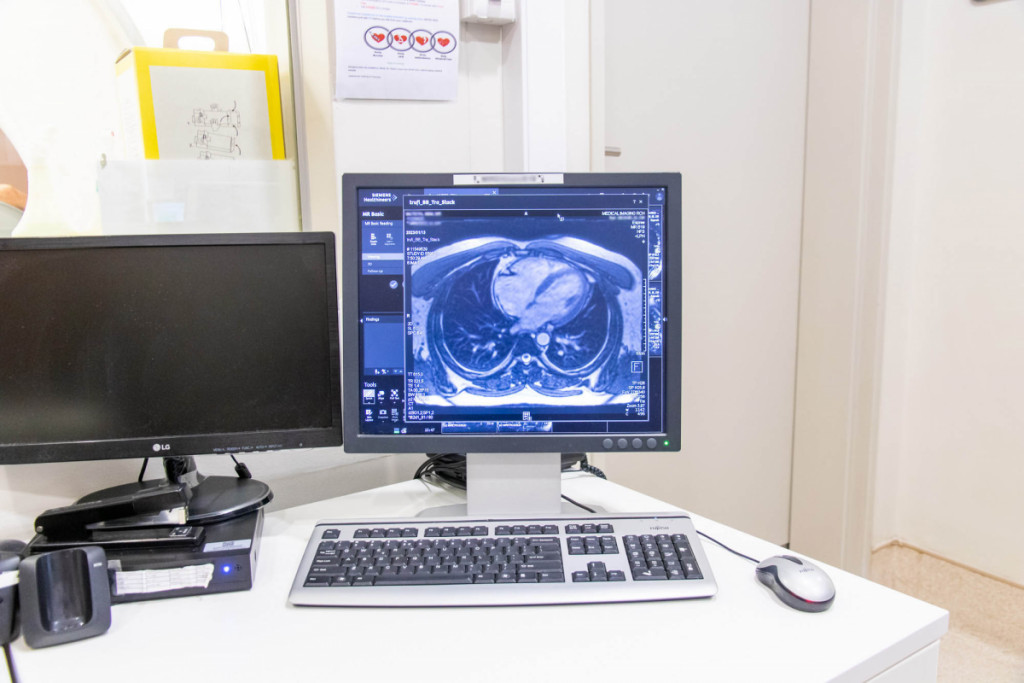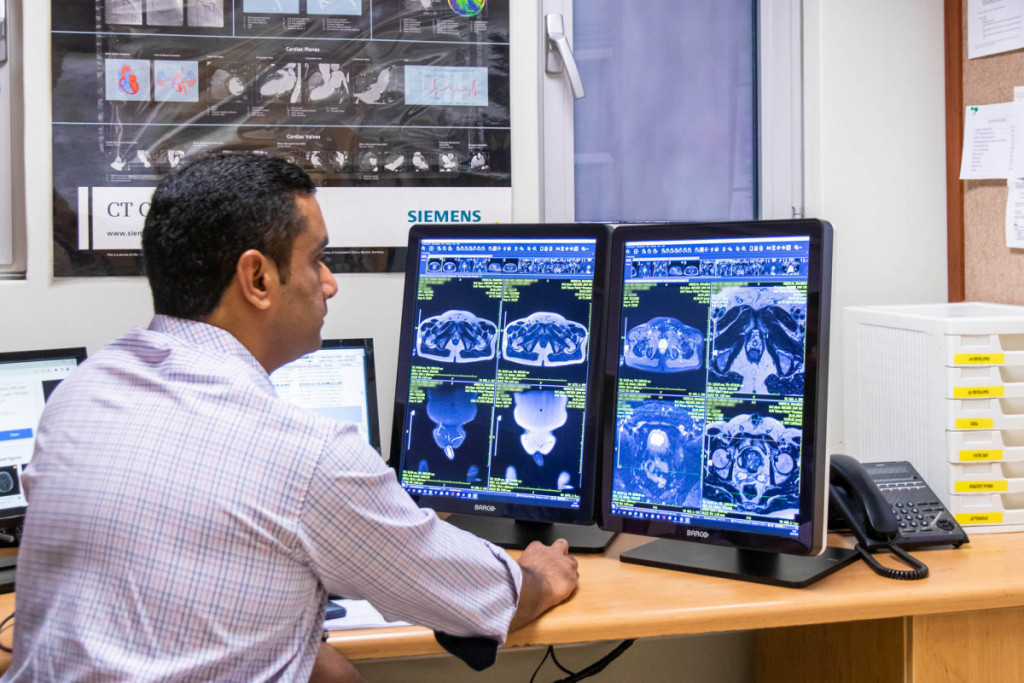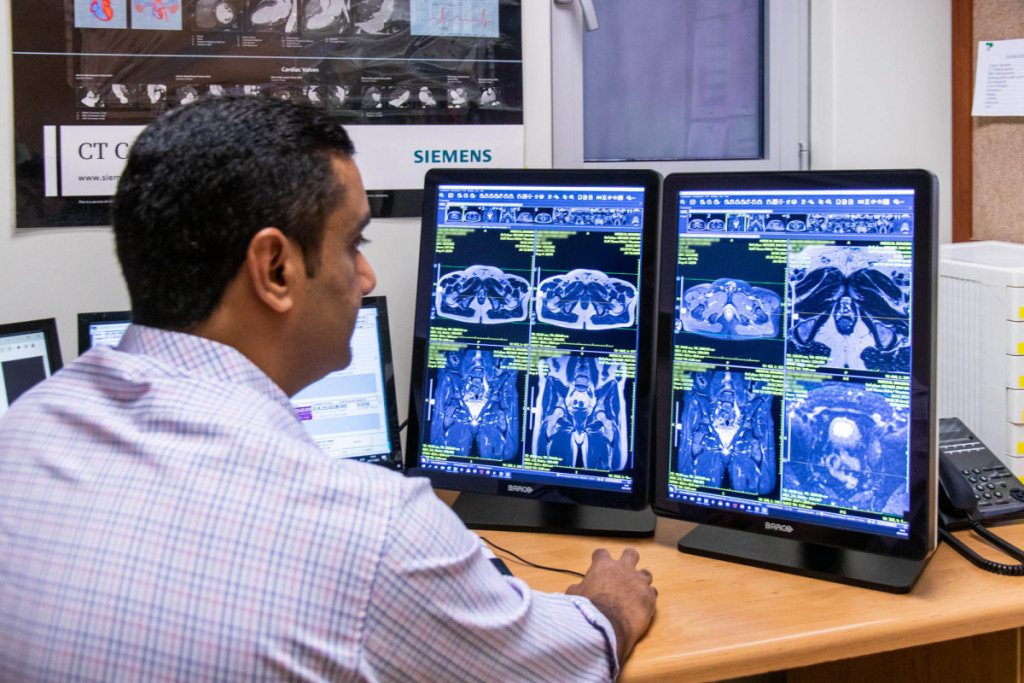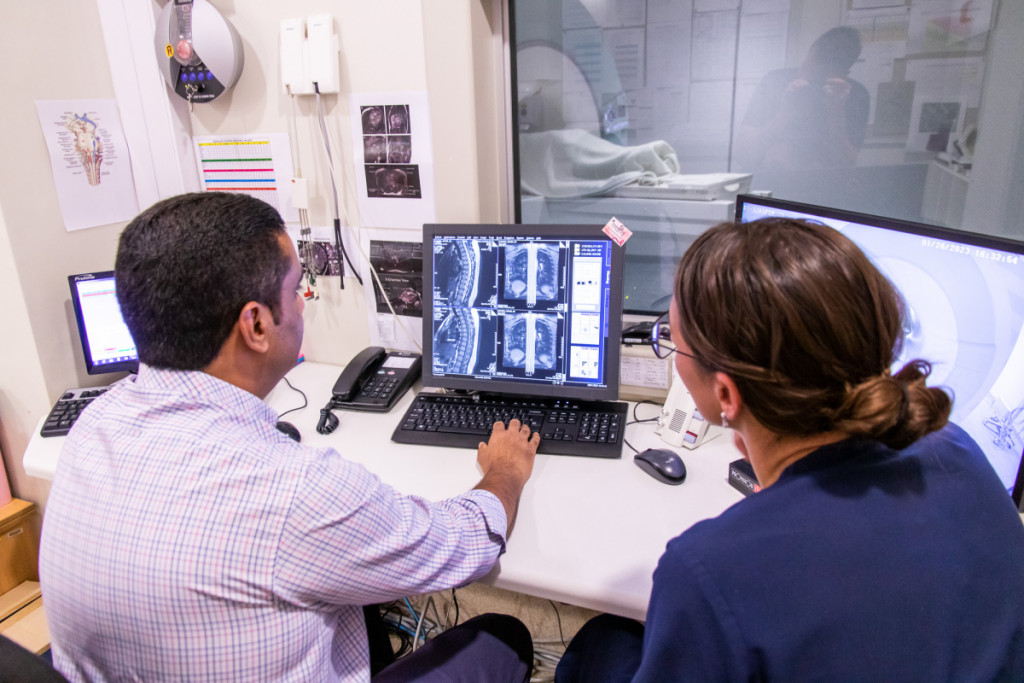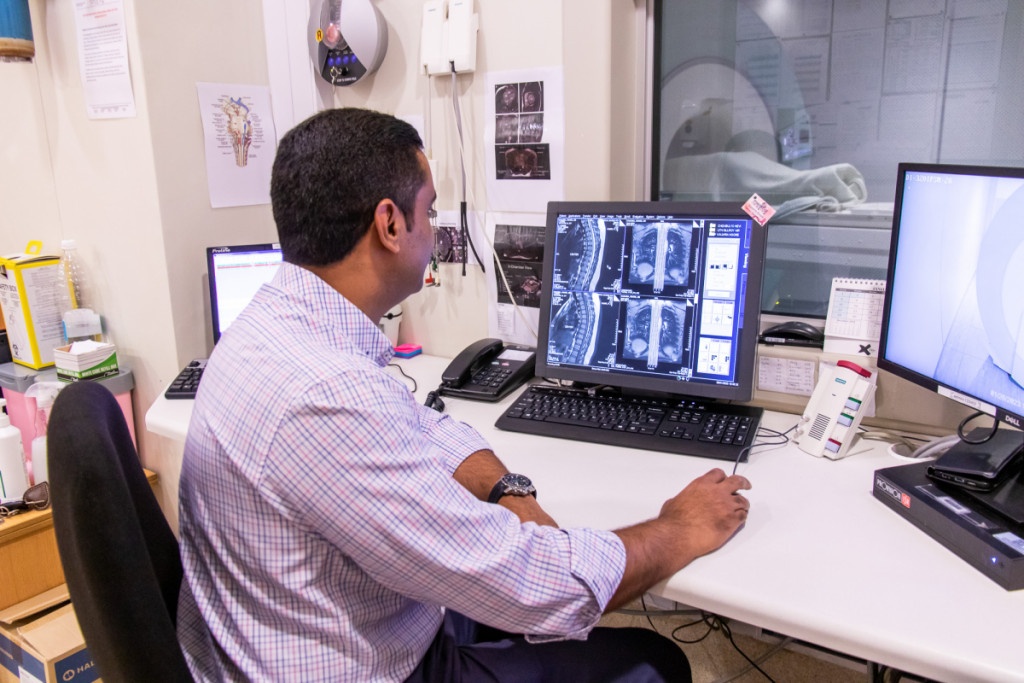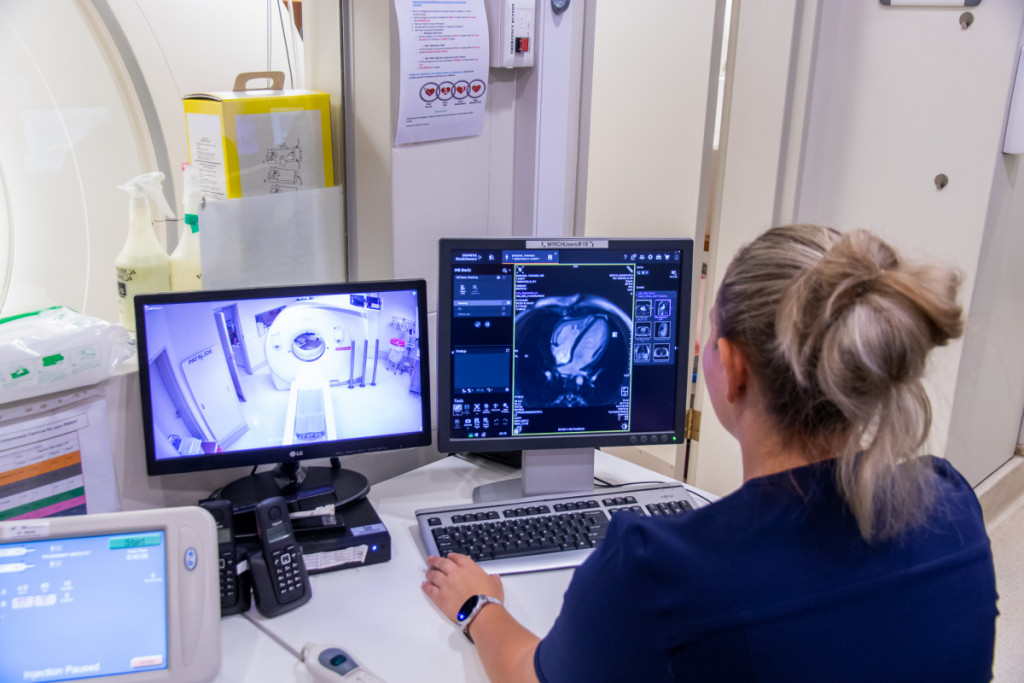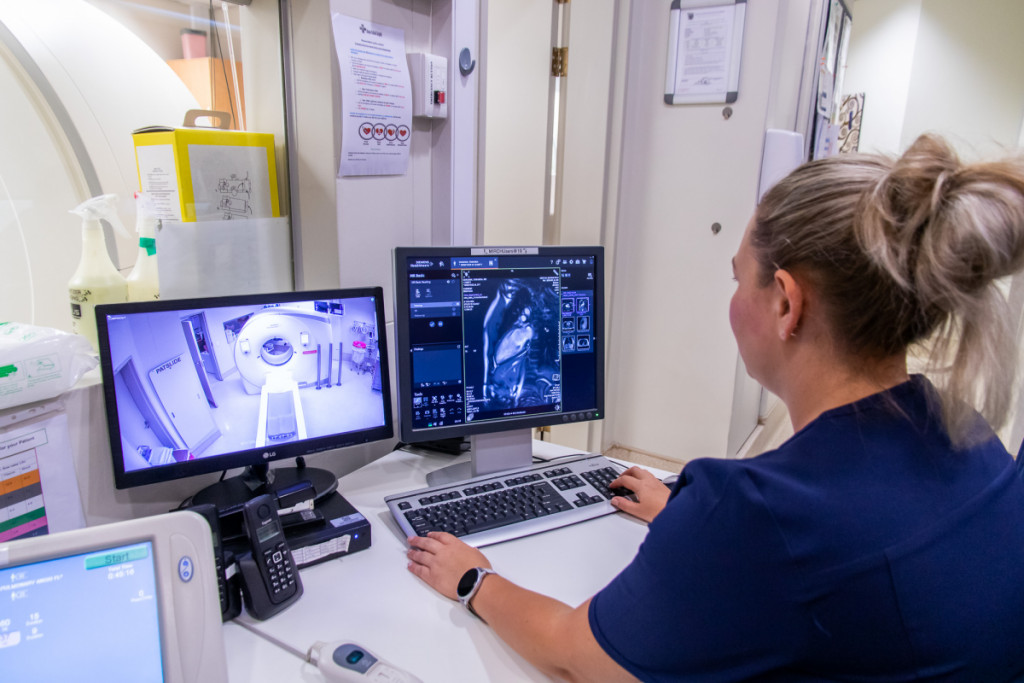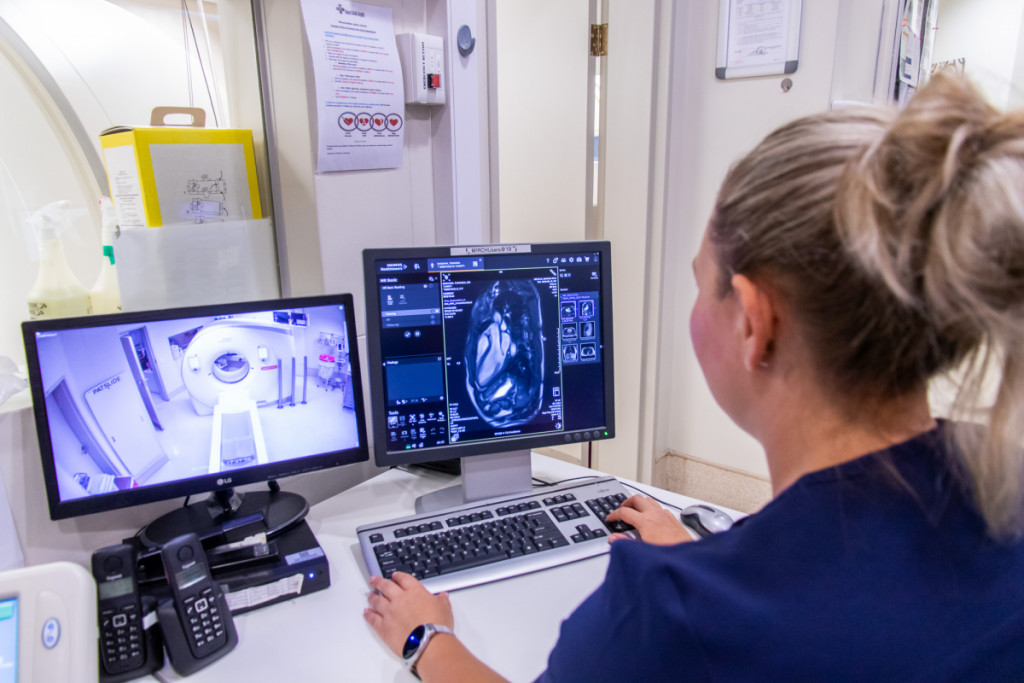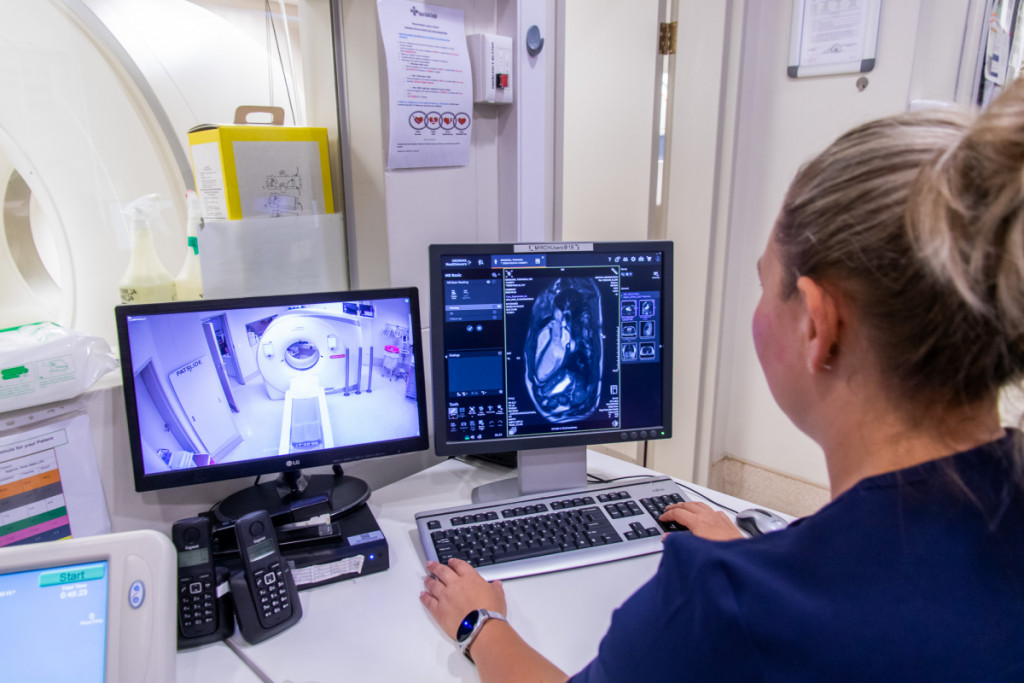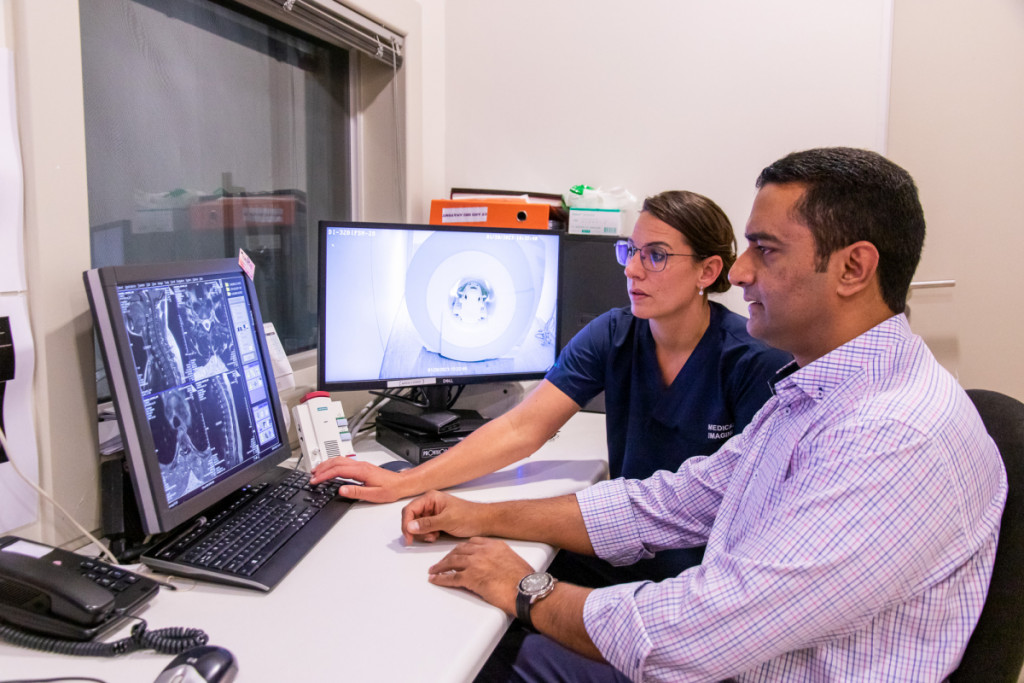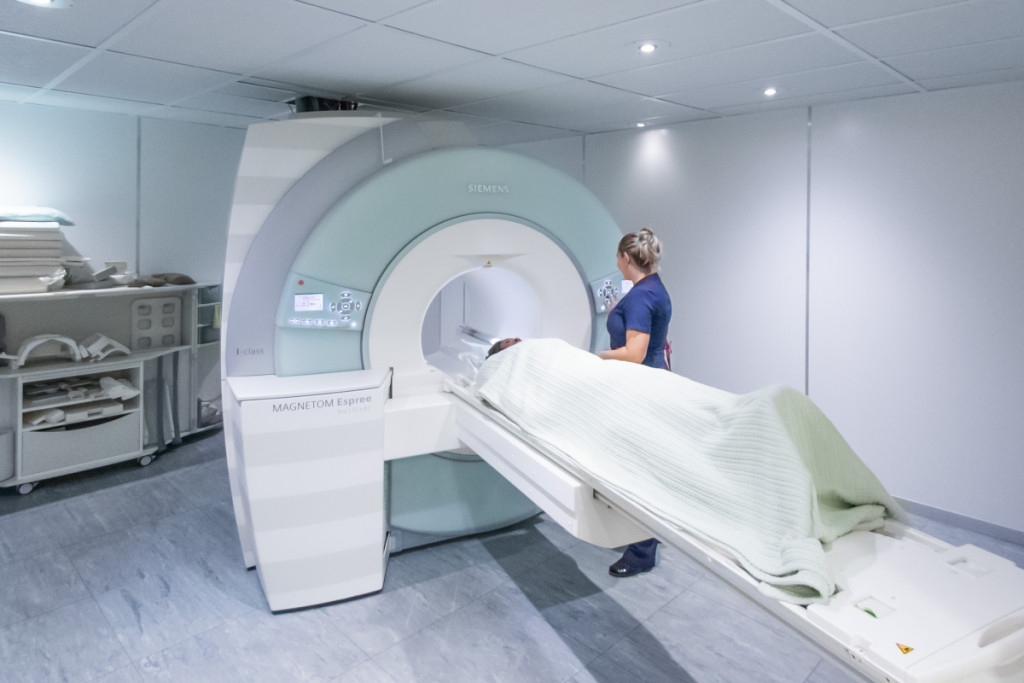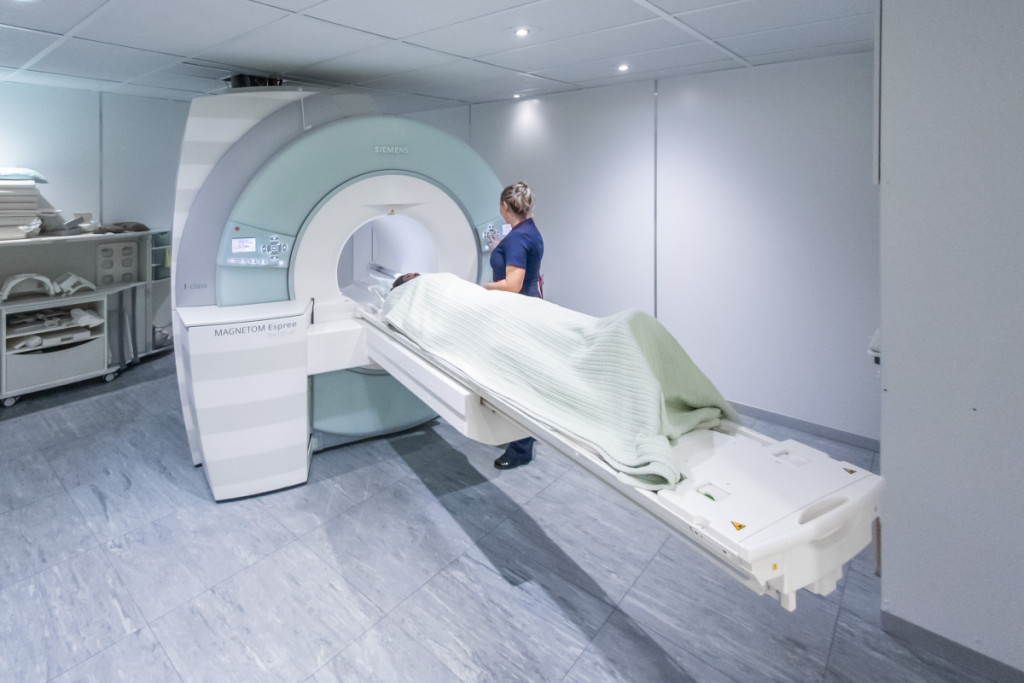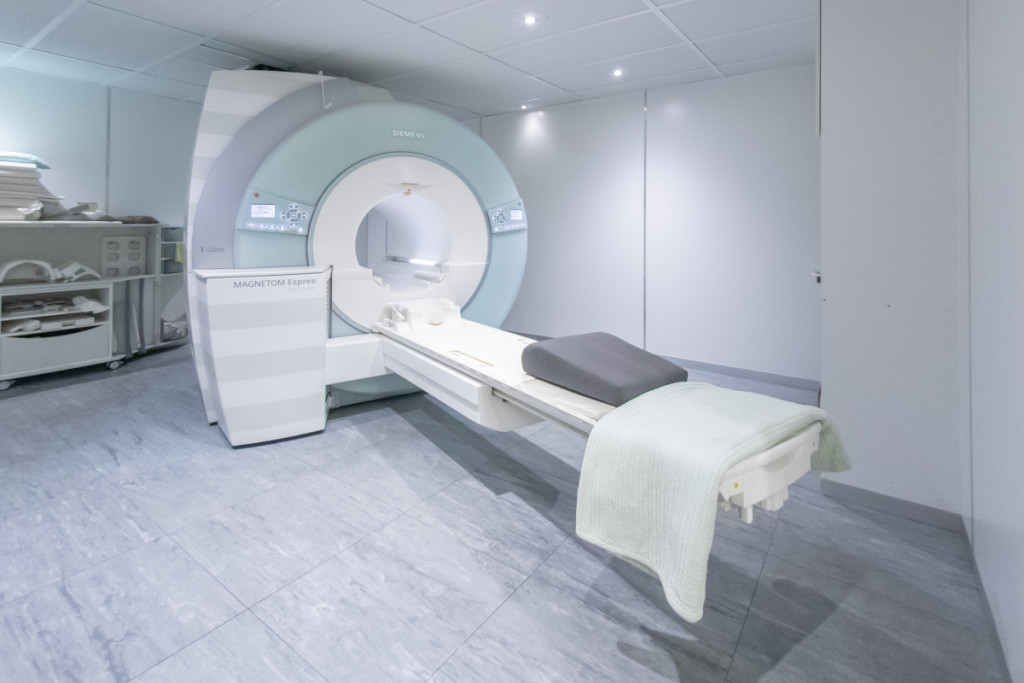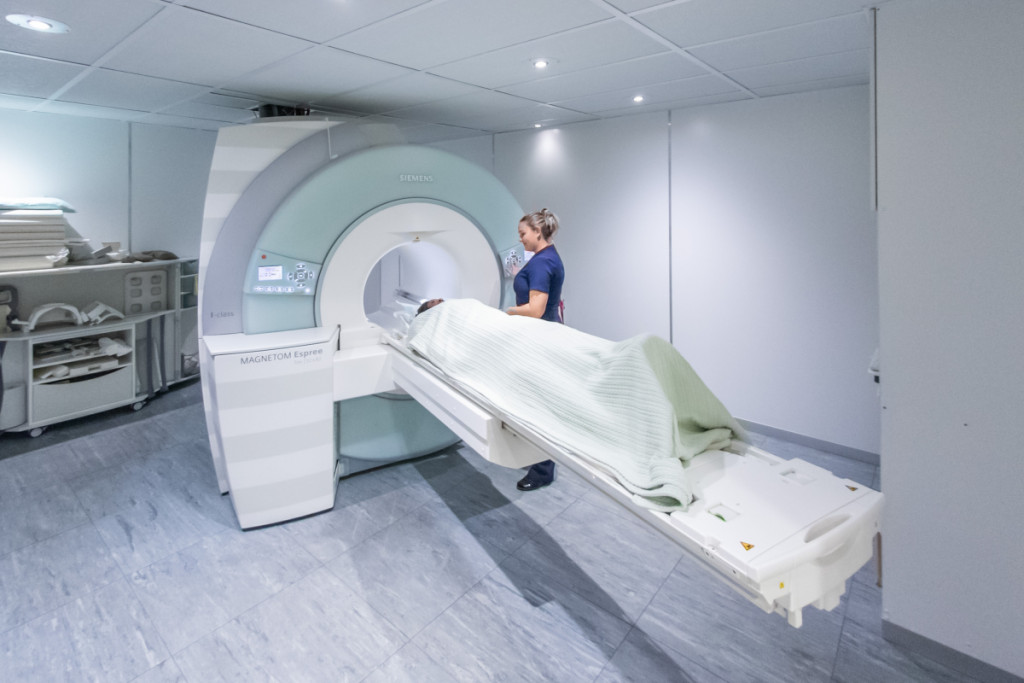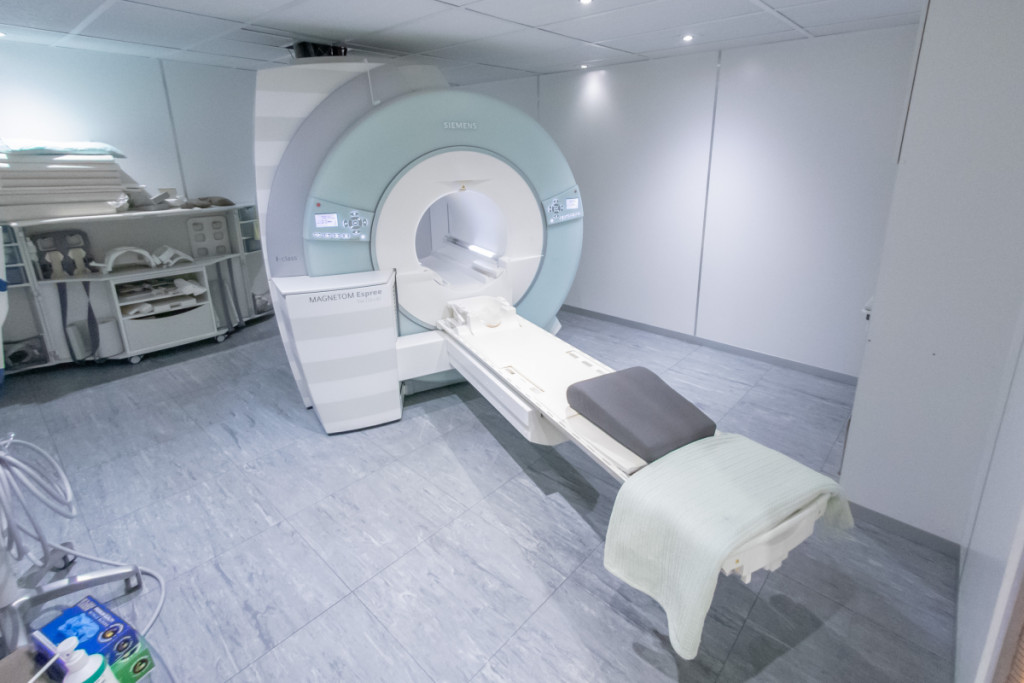What is a Magnetic Resonance Imaging (MRI)?
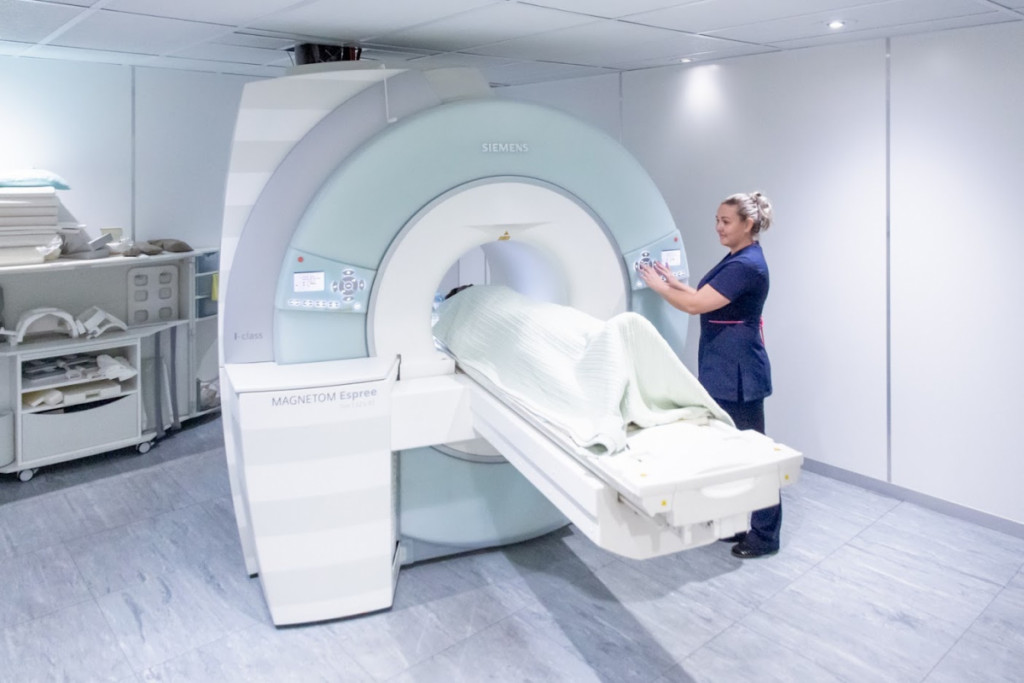
A non-invasive medical imaging technique provided Medical Imaging. It utilizes powerful magnetic fields and radio waves to generate detailed three-dimensional images of various structures within the human body. MRI is particularly renowned for its effectiveness in neurological imaging, enabling healthcare professionals to examine the intricate details of the brain and spine. By providing clear visualization of soft tissues, such as the brain's gray and white matter, MRI assists in diagnosing a wide range of neurological conditions, including tumours, strokes, and multiple sclerosis. Additionally, MRI is also employed in musculoskeletal imaging to assess joints, ligaments, and bones, aiding in the detection and characterization of injuries or diseases like arthritis. Furthermore, this versatile imaging modality has found applications in intrauterine imaging, enabling obstetricians to monitor a fetus and identify any potential abnormalities.
Overall, Magnetic Resonance Imaging plays a crucial role in modern medical diagnostics by offering a safe and detailed assessment of various body structures. Its ability to produce high-resolution images without exposing patients to ionizing radiation makes it a preferred choice for many healthcare providers. With its wide range of applications and capacity to generate comprehensive 3D images, MRI continues to contribute significantly to the accurate diagnosis and effective management of numerous medical conditions across different specialties.
